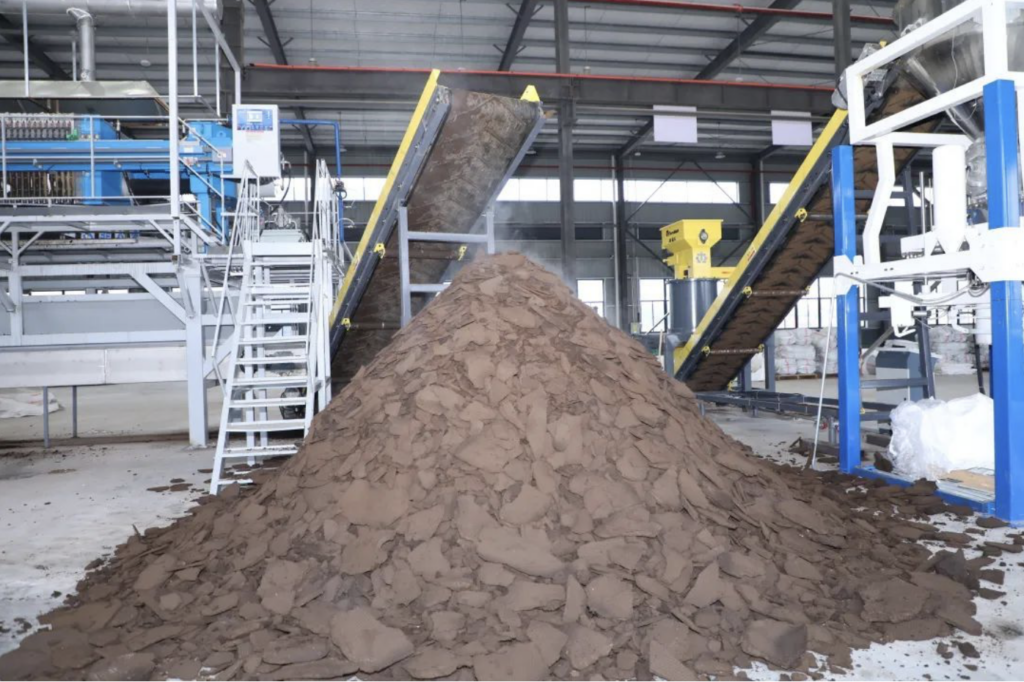http://j.people.com.cn/n3/2025/0407/c95952-20298654.html
“Chongqing black soil” is an artificial organic nano-carbon humus material developed by Professor Shen Xiande of Changchun University of Science and Technology and introduced by the university’s Chongqing Research Institute. The raw materials of this project are diverse agricultural and forestry waste straw. In a one-stage water pyrolysis cycle under relatively mild conditions, all components of straw are decomposed to organic nano-carbon humus products. The humus rate of the product reaches 70%, and the organic matter content after decomposition is over 80%, including 45% nano-level organic carbon.
The production line is located in Tianjia Town, Tongnan District, and is designed to process more than 20,000 tons of straw. When fully operational, it can produce more than 60 tons of solid “Chongqing black soil” per day.
According to Cao Guohua, director of the institute, Chongqing Black Soil can greatly improve soil fertility and effectively solve problems such as soil hardening and desertification. Extensive experimental cultivation has been carried out in Heilongjiang Province, Xinjiang Uygur Autonomous Region, Inner Mongolia Autonomous Region, Jilin Province, Shanxi Province, Yunnan Province, Sichuan Province, Chongqing Municipality and other areas.
According to an inspection report by the Hunan Academy of Agricultural Sciences, the use of Chongqing Black Soil can strengthen the stress resistance of crops, reduce the incidence of pests and diseases, increase production by more than 10% per mu (about 6.7 ares), and reduce the use of fertilizer by more than 30-70%. According to a European inspection report, the residues of 509 types of pesticides and the content of seven types of heavy metals in crops after use were reduced to zero. By continuously returning “Chongqing black soil” to farmland (1 ton/hectare/year), the soil’s humic acid content will increase by more than 0.1%, significantly reducing the use of chemical fertilizers. By solving the problems of soil thinness, poor soil quality, and hardness, it will improve soil structure, increase the soil’s water retention capacity, and prevent the loss of soil organic matter and nutrients. Over the next five years, the team plans to promote more than 1,000 straw treatment projects across China and improve 10 million hectares of various soils.


